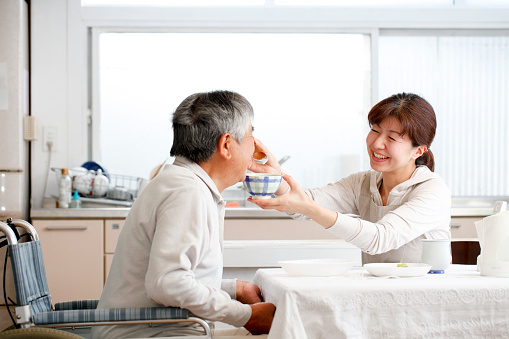AARP Hearing Center

Caring for a loved one – whether shopping for groceries or providing hands-on medical care – can be more manageable if you develop a team approach and be kind to yourself along the way, according to participants and staff at an online AARP seminar that originated in Lynchburg.
The goal of “Caregiving in Uncertain Times: Finding Support and Connection” on May 13 was to help people get started on their caregiving journeys and find assistance.
“You’re not alone in this” was a recurring theme. Forming a team of family members, friends, neighbors and even faith communities who can share responsibilities is essential. Putting together a family caregiving plan that taps the time and talents of this team will help you respond more quickly and effectively when needs arise, the presenters noted.
Caregiving from a distance can be an additional challenge, particularly during Covid-19. Tips for coordinating a loved one’s care include setting up medical appointments by video, telephone, or email – an increasingly popular approach called “telehealth.” Medical providers may be able waive or reduce cost-sharing for these visits during the pandemic. To participate in telehealth appointments, you’ll need a reliable internet connection and a smartphone, tablet, or personal computer. The provider may ask you to download an app like Zoom, Skype, or Google Hangout to facilitate the call and maintain the patient’s privacy.
If the pandemic has made visiting a loved one in a care home difficult, set up regular video calls via the staff and help fight loneliness by sending cards, letters, magazines, puzzles, or photos.
Food, medical necessities, and household items can be ordered and shipped directly to a loved one through online retailers.
To ensure that ample supplies of medications are on hand, the Centers for Disease Control recommends having a 30-day supply and – if possible – 90-day refills.
Since emotional and financial worries are ongoing challenges for caregivers, participants in the online seminar shared ideas for relaxing and staying positive. Reading, gardening, and meditation were among the activities that helped these family caregivers unwind.
Helpful information available from AARP Virginia include local family caregiving resource guides. The free Prepare to Care workbook helps you develop a family plan. In addition, AARP’s toll-free family caregiving line offers agents who can suggest resources on a variety of topics, including caring for the caregiver, financial issues, home care, veterans support and legal issues. The phone line is available Monday-Friday, 7 a.m. to 11 p.m. ET at 1-877-333-5885. The support line is also available in Spanish, at 1-888-971-2013.
AARP also has an online caregiving community where caregivers can join, for free, to talk with other caregivers and get answers from experts in the community. Facebook users can visit the AARP Family Caregivers Discussion Group to connect, share stories and get answers to caregiving questions.
Lynchburg-area residents might also find support in other local organizations. For example, the Central Virginia Alliance for Community Living, Inc. in Lynchburg supports older adults and persons with disabilities to live with dignity in accordance with their personal choices. Reach them at (434) 385-9070 or on the web at http://www.cvcl.org.
The University of Lynchburg’s Beard Center on Aging explores aging issues and the needs of older citizens. Reach them by phone (434-544-8456) or on the web (https://www.lynchburg.edu/academics/academic-community-centers/beard-center-on-aging).































































